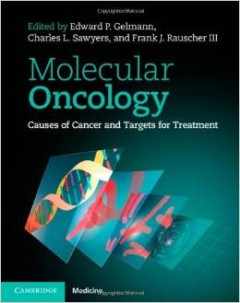Filter by

Detection Of Hpv16 E4 Mrna Expression In Association With Cervical Carcinogen…
Cervical cancer (CC) is one of the most prevalent malignancies in females worldwide, in which one of its major causative agents is human papillomavirus type 16 (HPV16). The current HPV screening measures are responsible for reducing CC incidence; however, some limitations still persist which brings about the necessity to investigate novel biomarkers. The HPV16 genome contains several genes with…
- Edition
- -
- ISBN/ISSN
- -
- Collation
- -
- Series Title
- -
- Call Number
- EP BM-034

Molecular oncology : causes of cancer and targets for treatment
The genomic era has allowed enormous strides in our understanding of the molecular changes that underlie malignant transformation. Mutations have been discovered that are critical drivers of large cross-sections of human cancers. These discoveries have allowed us to find drugs that target these drivers and make important strides in treatment. Genomics and high-throughput technologies have illum…
- Edition
- -
- ISBN/ISSN
- 9780521876629
- Collation
- xxi, 961 p. : ill. : ind. ; 29 cm
- Series Title
- -
- Call Number
- 616.994 Mol

Epigenetics in biology and medicine
Anomalous epigenetic patterns touch many areas of study including biomedical, scientific, and industrial. With perspectives from international experts, this resource offers an all-inclusive overview of epigenetics, which bridge DNA information and function by regulating gene expression without modifying the DNA sequence itself. Epigenetics, in its most basic form, means heredity is not the so…
- Edition
- -
- ISBN/ISSN
- 9780849372896
- Collation
- xii, 297 p. : ill. : ind. ; 24 cm.
- Series Title
- -
- Call Number
- 572.86 Epi
 Computer Science, Information & General Works
Computer Science, Information & General Works  Philosophy & Psychology
Philosophy & Psychology  Religion
Religion  Social Sciences
Social Sciences  Language
Language  Pure Science
Pure Science  Applied Sciences
Applied Sciences  Art & Recreation
Art & Recreation  Literature
Literature  History & Geography
History & Geography